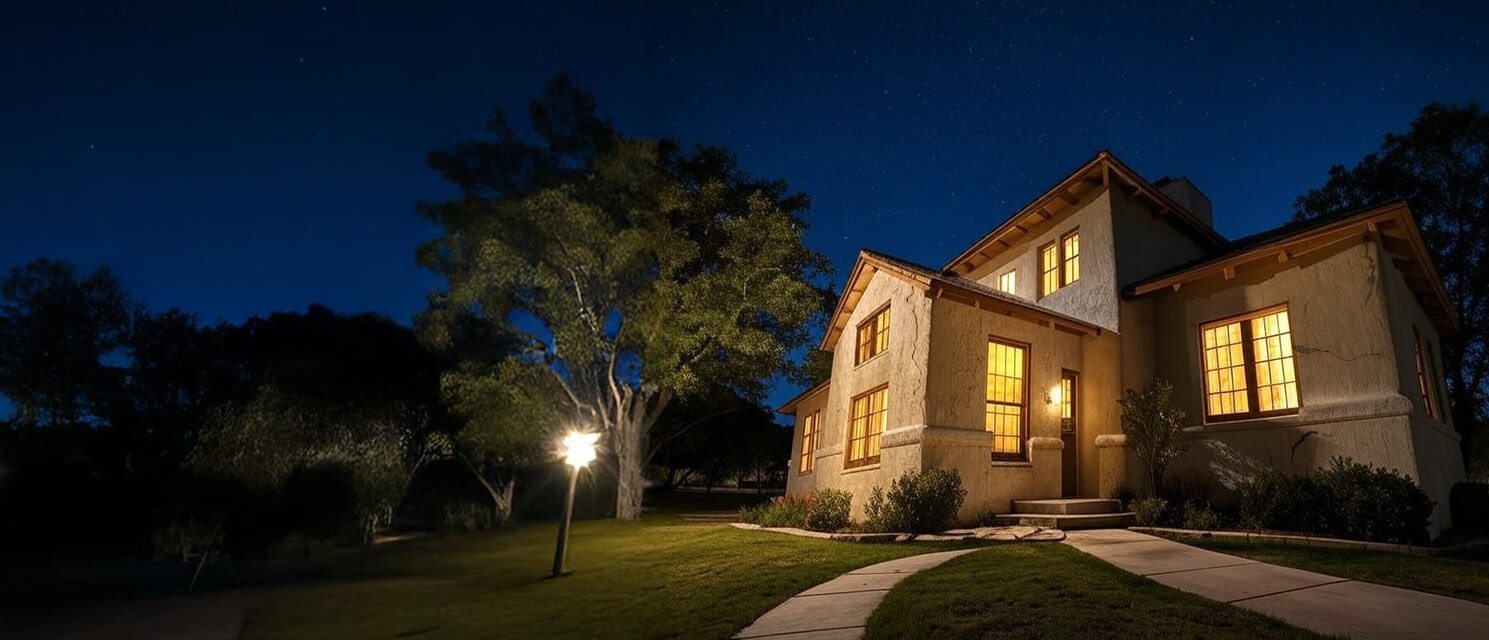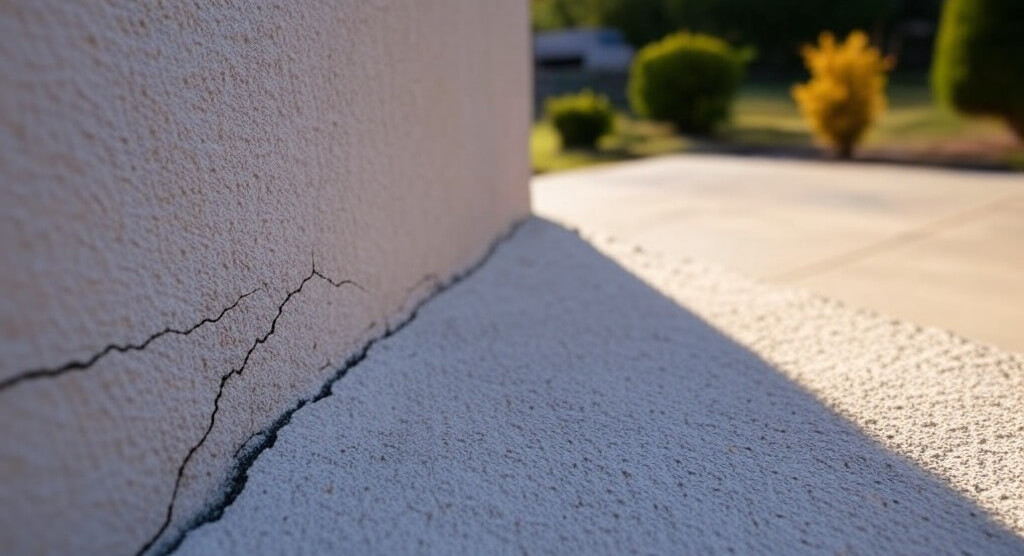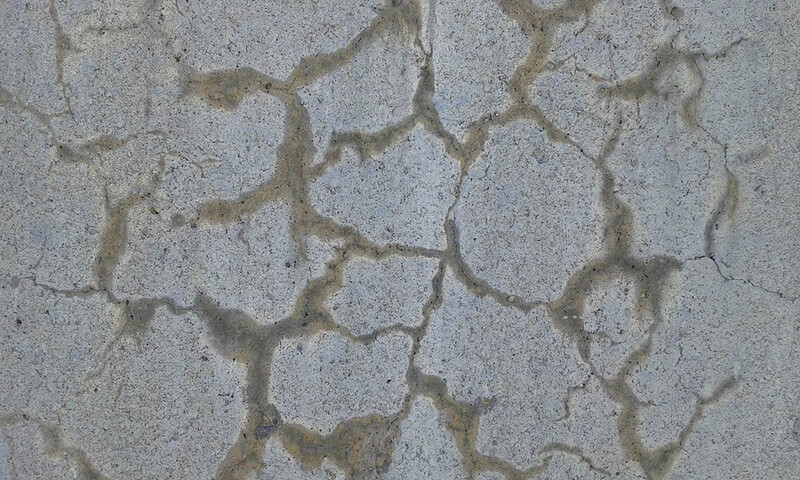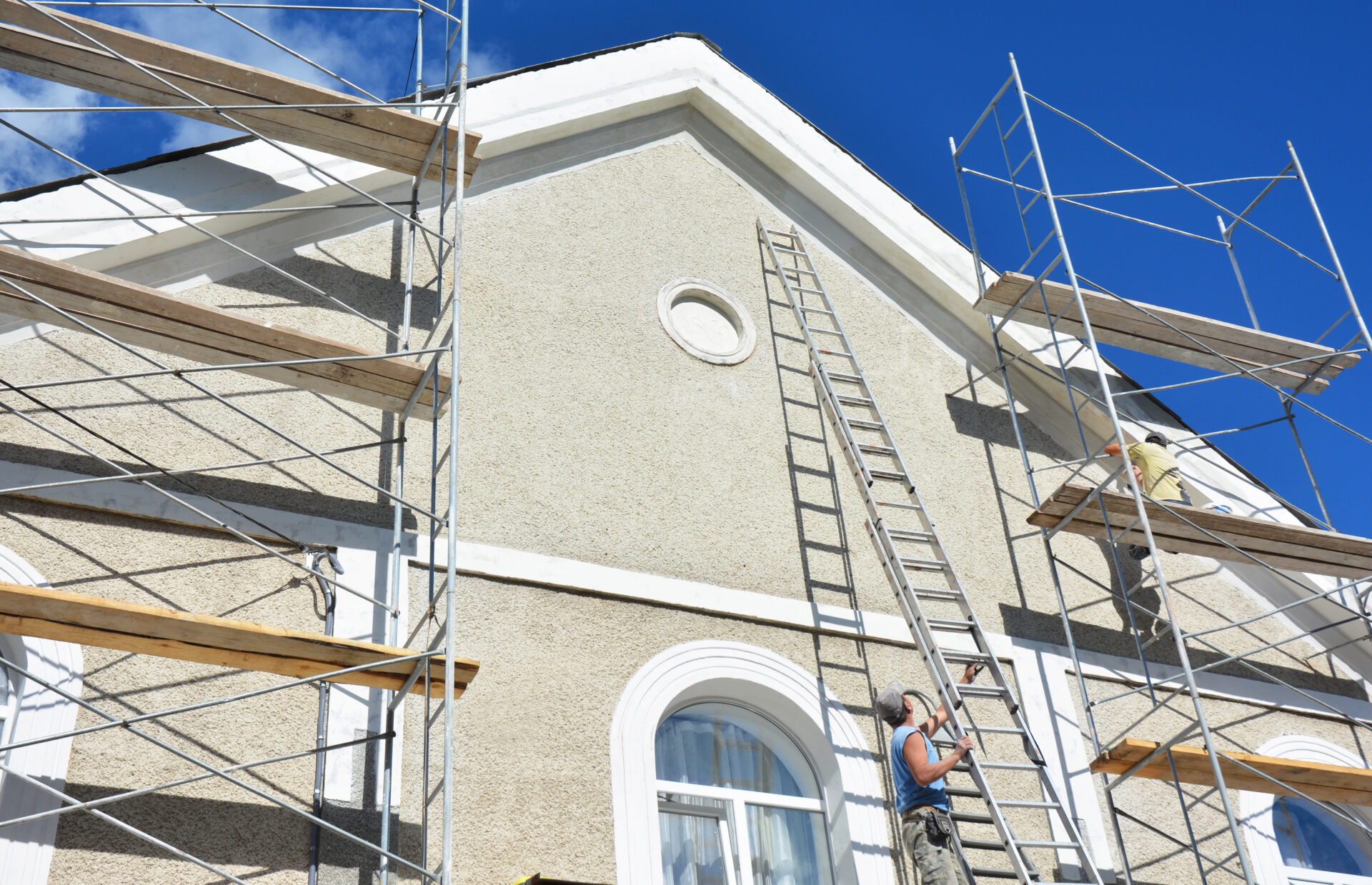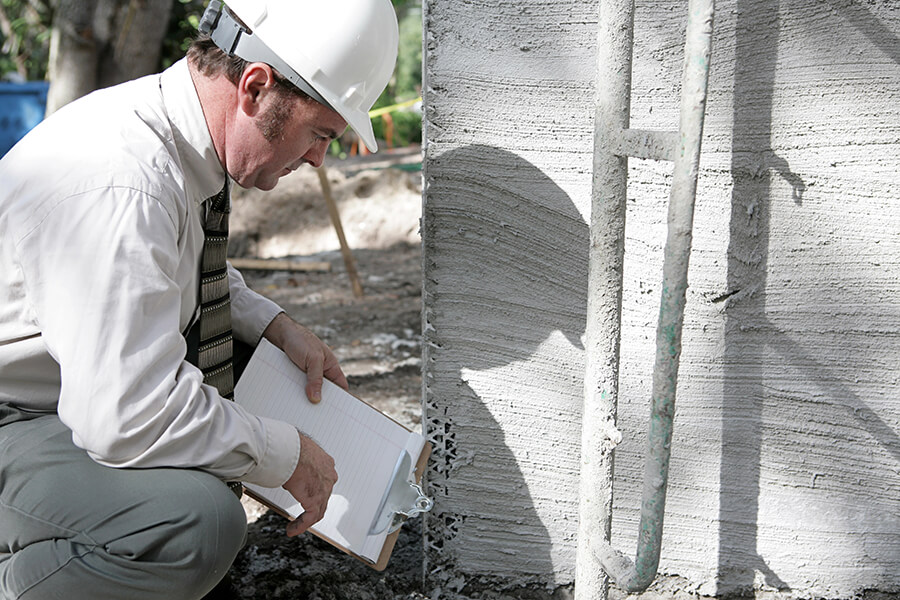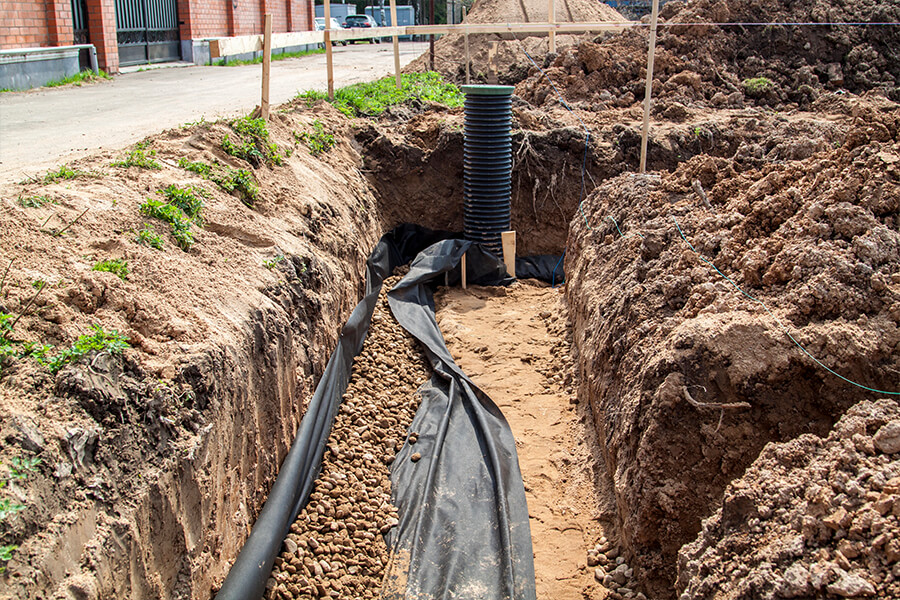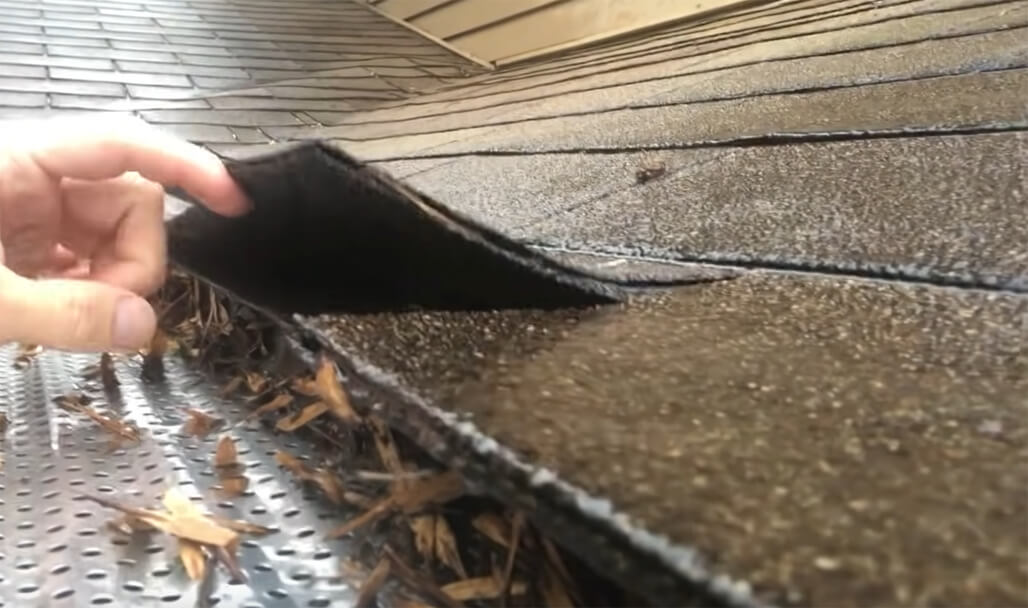If Your New Home Has Serious Issues, We’re Here to Help You Fight Back and Hold Builders Accountable.
Buying or building a new home is supposed to be one of life’s happiest moments. It’s where memories are made and futures are built.
But what happens when your dream home starts falling apart—literally?
If this sounds familiar, you’re not alone—and you don’t have to face it alone. The Law Office of Joel A. Levine is here to help you take action. With David C. Wenholz, an experienced residential construction lawyer, leading our team, , we’ve helped countless Texas homeowners fight back and recover the compensation they deserve.
Cracked walls that let the elements in and look terrible
A sinking foundation that makes floors uneven and doors impossible to close.
A plumbing system or HVAC system that doesn’t operate as it should, causing further damage.
Cracks in exterior stucco siding causing water intrusion or mold
These are problems no homeowner should face. Yet, many Texans are left to deal with defective construction and builders who refuse to take responsibility.
We Specialize in
Texas Residential Construction Disputes
Here’s why homeowners across Texas trust us to handle their cases:
Decades of Experience
David C. Wenholz knows construction law inside and out. From design defects to construction issues, we’ve handled every type of residential construction dispute.
Proven Results
We’ve helped countless homeowners resolve disputes and recover damages under Texas law.
Statewide Representation
From Austin to Dallas to Houston and beyond, we serve homeowners across Texas.
We Handle Builders Who Won’t Listen
When your complaints are ignored, we step in with the legal pressure needed to make them act.
Common Construction Defects We Handle
The Legal Process Made Simple
You’re frustrated. You’re overwhelmed. We get it. That’s why we handle everything for you.
Here’s how it works:
- Schedule Your Consultation: Call us at 512-982-1510 to share your story.
- Case Evaluation: We’ll review your contract, inspect the evidence, and explain your options.
- Demand Filing: We’ll take care of all notices required under Chapter 27 of the Texas Property Code – the Texas Residential Construction Liability Act.
- Resolution: Whether through negotiation, mediation, arbitration, or litigation, we’ll fight to get you the best possible outcome.
What Damages Can You Recover?
Texas law allows homeowners to recover compensation for a wide range of losses caused by construction defects:
The cost of repairs to structure
Temporary housing expenses.
Damage to personal property.
Reduced property value due to structural issues.
Expert and consulting fees
Leaning, Sinking, or Collapsing Foundations
Your foundation is the backbone of your home. When it’s flawed, everything else suffers.
Common foundation issues we tackle include:
- Leaning or tilting: A structural imbalance that threatens your home’s stability.
- Sinking: Uneven floors, cracked walls, and doors that won’t shut properly.
- Collapsing foundations: Catastrophic damage that makes your home unsafe to live in.
Who’s responsible? Liability may fall on:
- The home builder for shoddy workmanship.
- The engineer or architect for design flaws.
- The supplier of defective materials.
What causes foundation problems?
- Poor soil conditions or improper soil testing.
- Substandard construction materials.
- Negligent placement of rebar or faulty concrete mixing.
- Failing to build the foundation deep enough.
- Negligent design of the foundation by an engineer
Your Texas Foundation Attorney will investigate every detail to identify the responsible parties and fight for compensation to cover repairs, temporary housing, and the diminished value of your home.
Get a ConsultationWhen builders cut corners, you’re the one left with the fallout:
- Subpar materials.
- Poor craftsmanship.
- Work that just doesn’t hold up.
Your Texas Foundation Attorney will fight to get your defective work repaired or compensated. Whether it’s cracked walls, leaky roofs, or shoddy finishes, we’ll fight to ensure your home is fixed the way it should’ve been from the start.
Get a ConsultationPoor Grading and Drainage
Water pooling around your foundation can cause severe, costly damage. Builders must design homes to ensure proper drainage, and failure to do so could make them liable for repairs.
Signs of poor grading and drainage include:
- Puddles forming around the foundation after rain.
- Water seeping into your basement or crawl space.
- Soggy lawns and landscaping erosion.
What causes grading and drainage problems?
- Neglecting to slope the ground properly around the home.
- Poorly designed drainage systems.
- Failure to account for local soil and climate conditions.
Your Texas Foundation Attorney will work with experts to evaluate the impact of poor grading, develop repair plans, and hold your builder accountable for the damage.
Get a ConsultationRoofing Problems
Your roof is your home’s first line of defense. Unsealed penetrations, missing shingles, or faulty underlayment can lead to water damage, mold, and expensive repairs.
Common roofing defects include:
- Unsealed penetrations: Gaps around vents, chimneys, or skylights.
- Missing or loose shingles: Allowing water to seep through.
- Improper underlayment installation: Failing to provide a watertight barrier.
What are the consequences of roofing issues?
- Water intrusion and ceiling damage.
- Mold growth caused by persistent leaks.
- Reduced energy efficiency due to poor insulation.
Your Texas Foundation Attorney will help you identify roofing defects, calculate repair costs, and recover damages from the responsible parties.
Get a ConsultationPlumbing and HVAC Defects
Plumbing Defects: Poorly planned or installed pipes can lead to:
- Leaks that cause water damage and mold growth.
- Sewage backups due to improper drainage.
- Premature pipe failures.
HVAC Defects: Faulty ductwork or poorly installed systems can result in:
- Reduced airflow and uneven heating or cooling.
- Poor air quality that may affect your health.
- Higher utility bills due to inefficient operation.
Your Texas Foundation Attorney work with experts to diagnose the issues, hold the responsible parties accountable, and pursue the compensation needed to repair or replace defective systems.
Get a ConsultationPool Concrete Cancer
Concrete cancer, also known as concrete spalling or delamination, can destroy the structural integrity of your pool, causing cracks and breakages that worsen over time.
What causes pool concrete cancer?
- Corrosion of steel reinforcement bars within the concrete.
- Poor quality concrete mixes or improper curing.
- Insufficient waterproofing or exposure to harsh chemicals.
Signs of pool concrete cancer include:
- Cracking or flaking concrete surfaces.
- Rust stains seeping through pool walls or decks.
- Water leaks from structural damage.
Read more about Pool Cracking in Central Texas
Consequences of ignoring the issue:
- Escalating repair costs as damage spreads.
- Safety hazards – collapsing pool walls or unstable decks.
- Reduced property value and usability of your pool.
Your Texas Foundation Attorney will work with engineers and pool specialists to diagnose the damage, determine liability, and recover compensation for extensive repairs or replacements.
Get a ConsultationStucco is a popular exterior finish, but when improperly installed or maintained, it can lead to serious structural and aesthetic issues.
Common stucco defects include:
- Cracks and peeling: Allowing water to seep into walls.
- Mold/mildew growth: Due to improper moisture barriers.
- Delamination: Stucco separating from the underlying surface.
- Staining/discoloration: Water damage or poor installation.
Consequences of stucco defects:
- Compromised structural integrity due to water intrusion.
- Expensive repairs to both interior and exterior walls.
- Decreased property value.
Read more about Defective Stucco in Austin
What causes stucco defects?
- Improper application techniques, such as failing to install a proper moisture barrier.
- Use of substandard materials that don’t hold up over time.
- Failure to account for humidity and temperature changes.
Your Texas Foundation Attorney will work with stucco and construction experts to identify the root cause of the issue, determine liability, and ensure your repairs are covered.
Get a ConsultationWarranty Violations
Most new homes come with express warranties—1–2 years for general defects and up to 10 years for structural issues. When builders refuse to honor these warranties, we take action.
Signs of warranty violations include:
- Delayed responses or refusal to address complaints.
- Superficial fixes that fail to resolve the problem.
- Denial of coverage for defects within the warranty period.
Your Texas Foundation Attorney will demand repairs and pursue legal remedies under the Deceptive Trade Practices Act (DTPA) and other areas of Texas law to ensure your home is made right.
Get a ConsultationWhy Act Now?
Construction defect claims are subject to strict deadlines in Texas. The longer you wait, the harder it may be to hold builders accountable. Don’t let time run out on your case—take the first step today.
Success Stories
Dave Wenholz and his team were a pleasure to work with. The combination of battle-tested experience, listening skills, and diligence allowed me to feel truly represented. I’m glad to have had them in my corner and wouldn’t hesitate from recommending you do the same.
— Daniel Guerra
Had a great experience hiring the Law Office of Joel A. Levine. They were professional and attentive.
— Elizia Cardoso
I can not say enough about the Law Office of Joel A. Levine. I was not sure what to expect going into the process of hiring a lawyer. From the very first consultation with this firm, I was treated with such respect. My questions and concerns were answered with respect and clarity. I would not hesitate to put my legal needs in the hands of the attorneys at Joel A. Levine if the need ever presented itself in the future.
— Pam Yarber
Construction Defects Blog

Hiring a Property Damage Lawyer in Texas: A Complete Guide

Cracked Pools and Concrete Cancer: Attorney David Wenholz Quoted in Texas Monthly

Signs and Symptoms of Foundation Damage: What Every Texas Homeowner Should Know
Frequently Asked Questions
What should I do if I suspect construction defects in my home?
Start by documenting everything. Take pictures of the defects, note the dates you noticed the issues, and gather any correspondence with your builder or contractor. Then, contact us at 512-982-1510 to schedule a consultation. We’ll help you determine the best course of action under Texas law.
Can I file a claim if I’m not the original homeowner?
Yes, you may still have a valid claim. Even if you didn’t build the home, you could pursue legal action against the builder, subcontractors, or other responsible parties for defects that have impacted your property. It is important to contact an attorney who can explain your rights as a subsequent homeowner since they could vary from those of an original owner.
What is Chapter 27 of the Texas Property Code, and why is it important?
Chapter 27 outlines the specific homeowners must follow to make a valid construction defect claim. This includes sending a formal notice to the builder with details of the defects and giving them an opportunity to inspect and make repairs. We handle this process for you to ensure compliance and maximize your chances of recovery. There have been major recent changes to Chapter 27, the Residential Construction Liability Act (RCLA) and it is important to consult with an attorney who is knowledgeable in this field.
What types of damages can I recover in a construction defect claim?
Under Texas law, you can recover:
- The cost of repairs.
- Temporary housing expenses.
- Compensation for damaged personal property.
- Loss of property value.
- Attorney’s fees and court costs.
What if my builder refuses to respond or fix the problem?
Builders are legally required to address valid construction defect claims. If your builder ignores your complaints or offers inadequate solutions, we can escalate the matter through legal action, including litigation, to enforce your rights.
How long do I have to file a construction defect claim?
In Texas, the statute of limitations for construction defect claims generally ranges from 2 to 4 years, depending on the nature of the defect and when it was discovered. The analysis of this timeframe can be complicated and is constantly being challenged by homebuilders. It’s critical to act quickly, as delays could weaken your case or prevent you from recovering damages altogether. Texas law also has a general Statute of Repose protecting home builders from liability after a certain amount of time has passed.
How much does it cost to hire your firm?
We try to handle most cases, we work on a contingency fee basis, meaning you pay nothing upfront. Our fee is a percentage of your recovery, and if we don’t win your case, you owe us nothing. This ensures our success is tied directly to yours. Depending on the facts of the case and legal issues, it is possible we may offer an hourly billing schedule for your case.
Take Action Today
With the Your Texas Foundation Attorney on your side, you can fight back and protect what matters most.
You’ve worked hard for your home. Don’t let careless builders take that away from you.
Call 512-982-1510 or fill out our contact form now to schedule a consultation.
About Us
The Law Office of Joel A. Levine has built a reputation for excellence in residential construction law. Led by David C. Wenholz, an experienced attorney in construction disputes, Your Foundation Attorney is here to protect homeowners across Texas.


